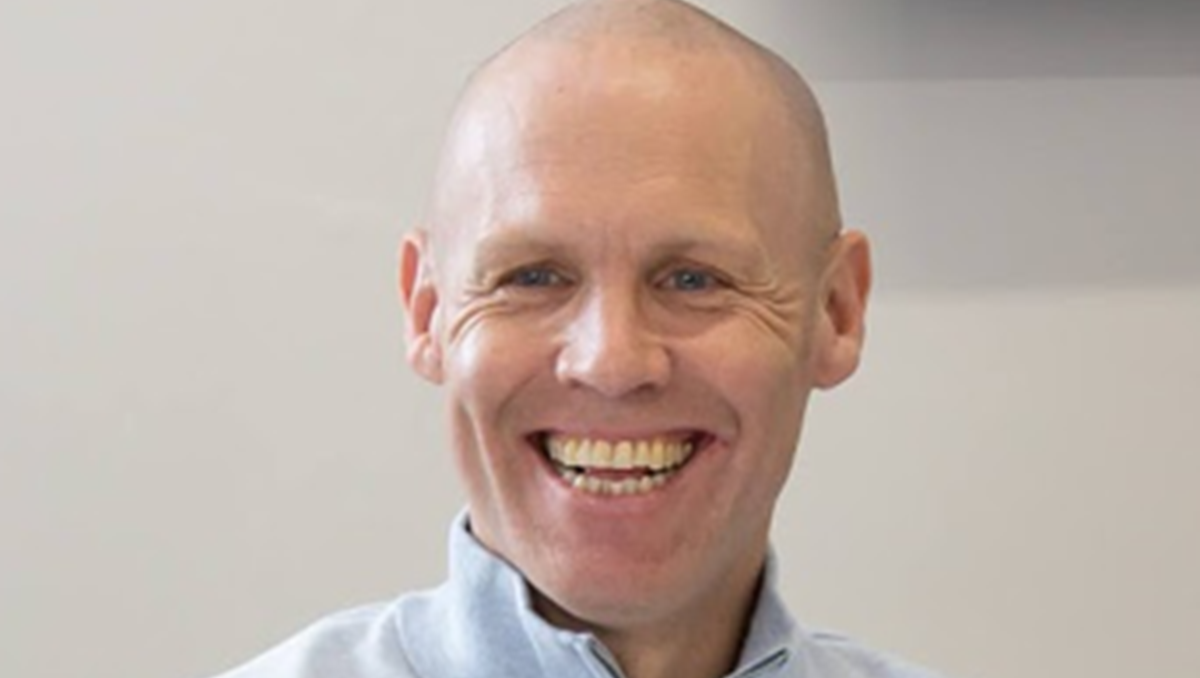Michael’s story: breaking the silence and speaking up about mental health in education settings
Hear from Michael McVerry, Managing Director of Buzz Education, who shares his personal journey with mental health, building healthier habits, seeking support and finding more balance.
Articles / 4 mins read

Teaching is a profession built on care, energy, and commitment. Teachers give so much of themselves to their pupils that it can often feel like there’s little left for their own wellbeing. For men, the challenge can be compounded by cultural expectations.
There’s a strong stereotype of the male teacher as the role model, the disciplinarian, the one who “has it all under control.” The idea that you should be the problem-solver who doesn’t falter can make it difficult to admit when you’re struggling.
Research backs this up. Male teachers report high levels of stress, insomnia, and burnout, but they are less likely to seek help than their female colleagues. Many men believe that admitting to difficulties is a form of failure. I certainly did at one time. That silence can be dangerous, and it keeps too many of us from accessing the support we need.
When professional stress meets personal crisis
Stress doesn’t respect boundaries. It doesn’t neatly separate work from life outside school. Leaving the profession didn’t shield me from hardship; in fact, it was after I left that life threw some of its toughest challenges my way.
Divorce shook my personal life. Financial troubles added daily strain and uncertainty. Then came a serious health diagnosis that forced me to confront my vulnerability in a way I’d never experienced before.
Any one of these events would have been difficult enough, but together they felt overwhelming. And, like many men, I tried to carry them alone. That silence only amplified the stress and made it harder to recover.
For teachers still in the classroom, the overlap between the pressures of the job and personal struggles can feel crushing. Without open conversations and support networks, it can quickly spiral into crisis.
The idea that you should be the problem-solver who doesn’t falter can make it difficult to admit when you’re struggling.Michael
Lessons in resilience
I don’t share my story to dwell on the past, but because of what it taught me. Resilience isn’t about gritting your teeth and soldiering on in silence; it’s about recognising when you need help and having the courage to ask for it.
Here are some of the practical lessons that helped me rebuild:
- Talking matters. For me, opening up felt awkward at first. What helped was starting small; saying to a friend, “I’m not doing great at the moment.” I didn’t need to explain everything in detail; just admitting I was struggling made the next conversation easier.
- Perfectionism is a trap. For years I believed I had to get everything right. I began deliberately finishing tasks when they were “good enough,” not perfect. At first it felt uncomfortable, but over time I realised it freed up my energy and reduced the guilt that had been keeping me awake at night.
- Watch for the warning signs. I started keeping an eye on my own patterns, especially sleep. Several nights of poor rest, rising irritability, or withdrawing from people became my signal to pause and ask: what’s going on here? Instead of ignoring these red flags, I treated them as prompts to slow down and reach out.
- Small steps count. Big life changes felt impossible, so I focused on small, manageable habits: walking every day, eating properly, and setting a firm “no emails after 8pm” rule. These boundaries gave me back a sense of control and made me feel more grounded.
These weren’t overnight fixes. But slowly, they helped me find balance again. They reminded me that resilience is built not by pushing through alone, but by creating healthier habits and leaning on support when you need it.
A call to men in teaching today
If you are a man working in education, I want to say this clearly: you don’t have to carry it all on your own.
The profession can be demanding, isolating, and at times unforgiving. Combine those pressures with the challenges life can throw at us outside of school, and it can feel impossible to cope. But silence doesn’t make you strong, it only makes you more vulnerable.
Talking, reaching out, and asking for help are not signs of weakness. They are acts of courage, and they are the first steps towards recovery.
A practical suggestion that made a difference for me was finding a friend I trusted and checking in with them regularly. It wasn’t a formal “support group”, just a chat over coffee, asking each other how things were really going. That simple routine helped me feel less alone.
Another tip is to guard your downtime fiercely. Protecting time outside school isn’t selfish, it’s essential. Whether that’s family time, exercise, or just rest, it gives you the energy to show up better for your pupils and colleagues.
This applies to everyone in education
I’ve shared my journey through the lens of men’s mental health, because that was my experience. But the truth is that these challenges affect everyone working in schools. Whatever your gender, role, or background, the pressures of education can weigh heavily, and none of us are immune.
So whether you’re a teacher, a member of support staff, or a school leader, please remember: you don’t have to face it alone. Talk to someone you trust. Share how you’re really doing. And reach out for help if you need it.
You are not alone, and you don’t need to carry the weight by yourself.
If you’re struggling right now, Education Support offers a free, confidential helpline for everyone in education: 08000 562 561. Don’t wait until things feel unbearable. Start the conversation today. It might just be the most important lesson you ever share.
Sources
Don’t wait for a crisis to call.
We’ll offer you immediate, emotional support.
08000 562 561

Sign up to our newsletter for the latest mental heath and wellbeing resources, news and events straight to your inbox.





















